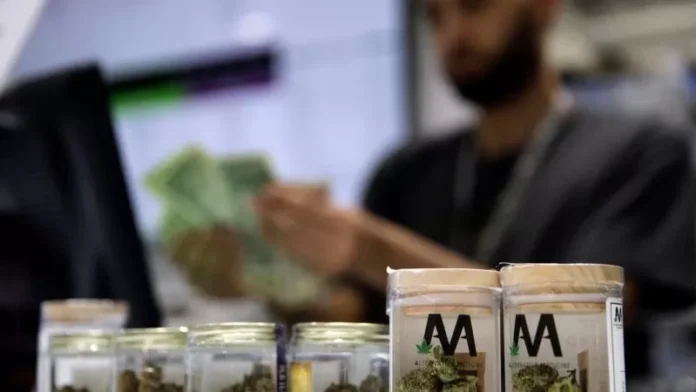Washington, D.C. – The debate over marijuana legalization in the United States has been ongoing for decades, but a decision on whether to reclassify the drug as less dangerous won’t be made until after the November presidential election. This timeline has raised the possibility that marijuana could become a potent political issue in the closely contested race.
The U.S. Drug Enforcement Administration (DEA) recently announced a hearing date for December 2nd to gather public comments on the proposed change in federal drug policy. This means that the final decision could potentially come during the next administration. While it is possible that the decision could be made before President Joe Biden’s term ends, it would be a highly expedited process, according to cannabis lawyer Brian Vicente.
This delay in the decision could bring attention to the presidential candidates’ stances on marijuana. Vice President Kamala Harris has expressed her support for decriminalizing the drug, calling its classification as a Schedule I drug alongside heroin and LSD “absurd.” However, her position on marijuana has evolved over the years, as she once oversaw the enforcement of cannabis laws and opposed recreational use while running for California’s attorney general in 2010.
On the other side, former President Donald Trump, the Republican nominee, has signaled his support for marijuana legalization in Florida and has previously stated that people should not be jailed for using a drug that is legal in multiple states. However, his campaign has not yet responded to inquiries about his position on rescheduling marijuana.
The Justice Department proposed reclassifying marijuana in May, acknowledging its medical uses and recognizing that it has less potential for abuse than other dangerous drugs. This proposal, however, does not legalize marijuana for recreational use. It came after President Biden called for a review, calling the potential change “monumental.”
The DEA has not yet taken a position on whether to go through with the reclassification, stating that they will continue to weigh the issue as the federal rulemaking process unfolds. This potential change in classification would be the most significant shift in U.S. drug policy in 50 years and could have a major impact on the upcoming election, especially with younger voters. However, it is facing opposition from groups such as Smart Approaches to Marijuana.
Kevin Sabet, the president of Smart Approaches to Marijuana, argues that there is not enough data to support moving marijuana to the less-dangerous Schedule III category, which includes drugs like ketamine and some anabolic steroids. He sees the DEA’s decision to hold a hearing as a victory in their fight to have the decision based on medical science rather than politics. Sabet also noted that 18 state attorneys general support his opposition to the reclassification.
The announcement of the hearing has caused concern among players in the marijuana industry, though it was not entirely unexpected. Stephen Abraham, the chief financial officer of The Blinc Group, a supplier of cartridges and other hardware used in pot vapes, expressed disappointment in the delay, stating that it benefits the illicit market when resources are taken away from the legal market.
The potential reclassification of marijuana has implications beyond just the political sphere. For example, if marijuana is rescheduled, state-licensed pot companies could potentially take federal business-expense tax deductions that are not currently available to enterprises involved in “trafficking” Schedule I or II drugs. This could significantly reduce the tax rate for some of Vicente’s clients, from 75% to 25%.
Additionally, some advocates for legalization see rescheduling as a step towards persuading Congress to pass legislation that would allow cannabis companies to access banking services. Currently, the drug’s legal status makes it difficult for federally regulated banks to provide services to these businesses. Rescheduling could also make it easier to conduct authorized clinical studies on marijuana, as it is currently challenging to research Schedule I substances.
However, some advocates for medical marijuana are concerned that the conversation around rescheduling has become overly politicized and that the focus has shifted away from the potential benefits for patients. Steph Sherer, the founder and president of Americans for Safe Access, hopes that a national medical cannabis program can be created, with a separate drug category for marijuana and a medical cannabis office within the Department of Health and Human Services.
While the immediate impact of rescheduling on the criminal justice system may be minimal, as federal prosecutions for simple possession are rare, the potential change in classification could have a significant impact on the future of marijuana in the United States. With 38 states having already legalized medical marijuana

